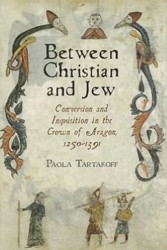Pérez, of the University of Bordeaux, discusses the history of Spanish Jewry and its status at the time of the expulsion in 1492. He presents theories on the Spanish monarchs’ motivations, including those of Joseph Baer, Henry Kamen, and Leon Poliakov. Pérez deems Americo Castro’s celebrated concept of a Jewish “Golden Age” under Christian rule a myth.
Averroism, plague, civil war, and violent conversion campaigns weakened the corporate autonomous Jewish communities. By 1492 Jews were no longer crucial to Spain. Pérez claims that only about 50,000 chose exile over conversion and denies that the expulsion caused the kingdom’s decline.
The author stresses historical context. The Jewish community became a threat to the full assimilation of converts. Attempts to segregate Jews and educate converts failed.
Jews had already been expelled from other European states “in even more inhumane circumstances.” According to Pérez, Spain eventually adopted the contemporary policies that the religion of a state was determined by that of its ruler, that religion could not be different from nationality.
This work is a scholarly view of a subject that continues to fascinate. Small type and a cramped style are minuses. It should be noted that Pérez is murky on the fate of Spanish Jews who fled to Portugal.





